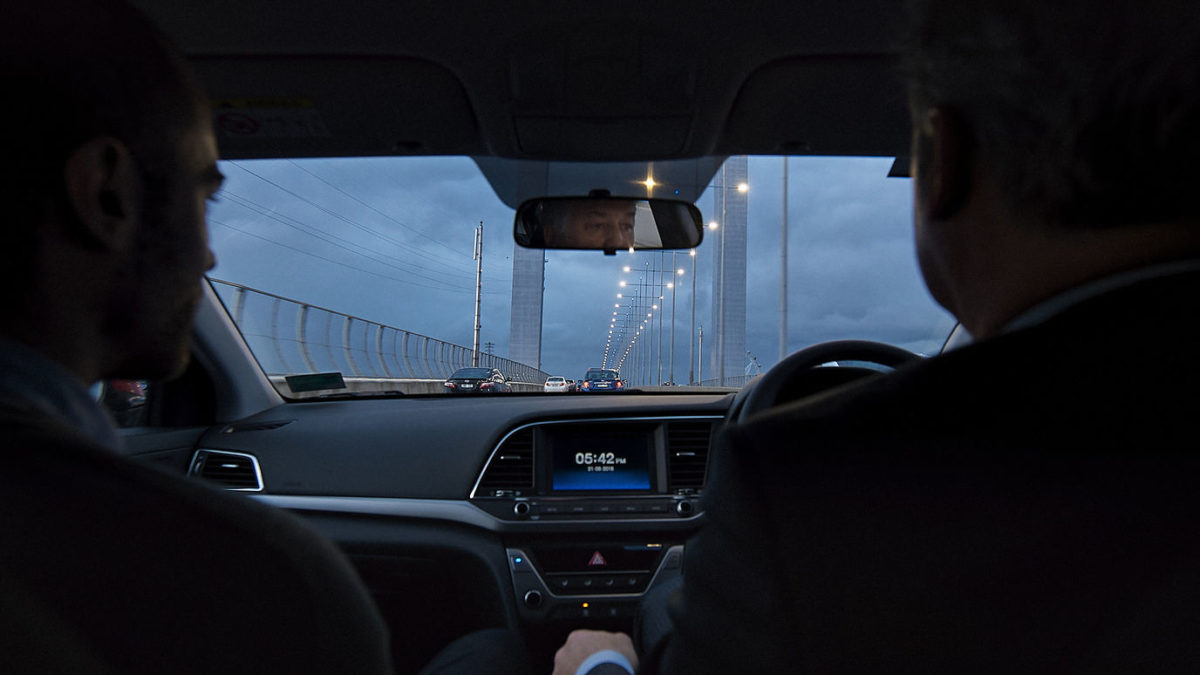Two young activists playfully enumerate the material things they’d need to fulfill their hopes and dreams. Nothing seems particularly extravagant or out there, as they each go through the minor comforts that’d be enough to make up their aspirational future life. Nevertheless, once they begin to add up the costs of their unspectacular future plans, reality sinks in. Expenses, time and wages are considered in an equation that reveals that thirteen years of labor are up ahead of them. If they wish to continue pursuing their dream, that is.
That sequence of socioeconomic disillusionment is one of the most explicit emanations of the main premise behind Renaud Després-Larose and Ana Tapia Rousiouk’s Le rêve et la radio: the search for meaning in late capitalism. Alongside David Easteal’s The Plains, International Film Festival Rotterdam’s Tiger Competition showcased two equally adventurous, yet stylistically contrasting portrayals of the aforementioned central concern.
In Le rêve et la radio’s case, the film’s narrative grounding lies in the interlocking relationships between four young activists with different understandings of how to impact the doom-laden surroundings of urban Québec. From political sound art and intellectual musings to clandestine alphabetization efforts and radicalism, their measures exude a common sense of urgency in the face of structural neglect. This impulse seems to be mirrored by Després-Larose and Tapia Rousiouk, whose occasional fourth wall-breaking vignettes and essayistic recitations are interwoven by an expressive play with form.
From constantly glitching digital formats and grainy double-exposures to jarring sound mixing and an expressionistic use of classical music, Le rêve et la radio offers a blank canvas for generational discontent to fully erupt, and yet, no matter how confrontational and experimental its forms get, what holds the 135-minute feature length together is its focus on the central social dynamics: the unassuming moments of intimacy and the shared moments of impotence.

Remarkably less abrasive are the forms of David Easteal’s The Plains. In its ultra-minimalist set-up, a single digital camera looms statically from the backseat of protagonist Andrew’s (Andrew Rakowski) car. Nondistinctive political chatter and the cacophony of engines during rush hour make up the constant soundscapes that work as Andrew’s sole companion most days as he gets back from his undisclosed office job. His outfit and assumed social context seem to indicate a somewhat well-off standing, but just as his features are only briefly perceived by reflections and profile perspectives, the specifics about Andrew’s character are never expanded beyond what can be inferred. Nothing else is needed as the film’s microcosm barely extends beyond the four doors of Andrew’s vehicle and the voices he speaks on the phone with.
Day after day, Andrew enters his vehicle at 5pm and drives by Melbourne’s busy traffic towards a home we never get to see. Despite sharing a conceptual anchor not too distant from a cinema vérité experiment, The Plains transcends mere formalist novelty by making the warmth of its emergent storytelling its core. Encounters with Andrew’s coworker, a much younger man called David (and interpreted by director David Easteal) are scattered throughout the film’s 180-minute runtime, capturing casual small talk whose recurring nature reveals an ever growing emotional core.
Conversations come and go, the hue of the setting sun varies from day to day, and yet, the daily grind seems eternal. It manifests as an all-consuming loop that seems to be only briefly mitigated by inconsistent disruptions and short moments of levity; ongoing threads whose unresolved nature let us imagine different futures, making them the only thing that keeps us coming back each day.